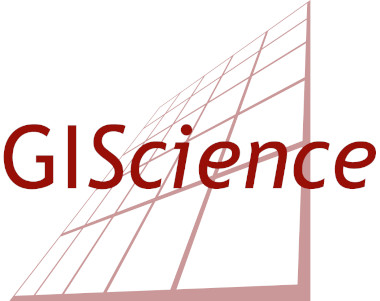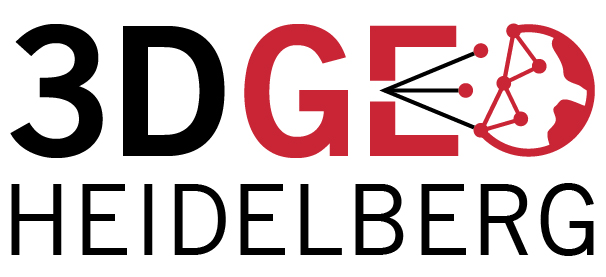Tag: MapSwipe
-
MS Wissenschaft beendet Tour zur Künstlichen Intelligenz – aber weiter geht es im Web – auch mit unserem Exponat zu Trainingsdaten für Satellitenbilder
Gerade beendete die MS Wissenschaft ihre Tour durch 31 Städte zwischen Berlin und Wien in diesem Wissenschaftsjahr zum Thema “Künstliche Intelligenz“. 85.000 Menschen – Schulklassen, Familien und Interessierte aller Altersklassen – besuchten die Ausstellung zum Thema lernende Computersysteme an Bord des Wissenschaftsschiffs. Zu den Besonderheiten der Ausstellung zählten die zahlreiche Dialog- und Mitmachangebote an Bord.…
-
MapSwipe 2.0: Reimagining how a mobile app can support humanitarian response worldwide
In 2015, MapSwipe began as a solution to a complex question: how do we better identify where communities and populations are, allowing mapping to be more efficient and effective? Using a simple mobile app, volunteers are able to swipe through a series of satellite images, tapping in areas where they find features. MapSwipe can be…
-
Mapathon at “JKG” during German Congress for Geography 2019
This year the bi-annual German Congress for Geography was held in Kiel in northern Germany. The conference is the main platform for German speaking researchers to exchange recent research results in the field of geography. Besides this, a growing number of events are being organized by students and “young” geographers as part of the “Youth…
-
Die MS Wissenschaft ist in Heidelberg
Bis zum 01.09.2019 kann die Austellung auf der MS Wissenschaft zum Thema “Künstliche Intelligenz” in Heidelberg besucht werden. Wir waren da und sind begeistert! Für die Ausstellung hat das HeiGIT gemeinsam mit dem Alfred-Wegener-Institut für Polar- und Meeresforschung in Potsdam das Mitmach-Exponat Mensch und Maschine – Forschung im Team entwickelt.
-
KI-Exponat des HeiGIT zu MissingMaps und Permafrostdetektion auf dem Portal zum Wissenschaftsjahr 2019 “Künstliche Intelligenz”
Seit einiger Zeit findet sich das gemeinsame Exponat des HeiGIT und des Alfred-Wegener-Instituts Helmholtz-Zentrum für Polar- und Meeresforschung für die Ausstellung “Künstliche Intelligenz” auf der “MS Wissenschaft” auch auf dem Webportal zum Wissenschaftsjahr 2019. Das Thema “Künstliche Intelligenz” des Wissenschaftjahres 2019 wird dabei an zwei Beispielen aufgegriffen. Diese zeigen wie jedermann durch das Erzeugen von…
-
HeiGIT beim Tag der offenen Tür beim Auswärtigen Amt
Am 16. und 17. August öffnet das Auswärtige Amt in Berlin die Tore für die Öffentlichkeit. An diesen Tagen kann nicht nur das Auswärtige Amt selbst besichtigt werden, verschiedene Diplomaten, Vertreter verschiedener Ministerien, Einrichtungen und Organisationen werden vor Ort sein, um aktuelle Projekte und Ideen vorzustellen. In diesem Rahmen wird es auch einen „Humanitären Raum“…
-
Mapping Human Settlements with Higher Accuracy and Less Volunteer Efforts by Combining Crowdsourcing and Deep Learning
Our new paper on Machine Learning and Humanitarian Mapping Nowadays, Machine Learning and Deep Learning approaches are steadily gaining popularity within the humanitarian (mapping) community. New tools such as the ML Enabler or the rapId editor might change the way crowdsourced data is produced in the future. Hence, at the Heidelberg Institute for Geoinformation Technology…
-
Estimating OpenStreetMap Missing Built-up Areas using Pre-trained Deep Neural Networks
Recently a new paper about Estimating OpenStreetMap Missing Built-up Areas using Pre-trained Deep Neural Networks (DNNs) has been presented at the AGILE GIScience conference 2019 in Cyprus. Although built-up areas cover only a small proportion of the earth’s surface, these areas are closely tied to most of the world’s population and the economic output, which makes…
-
Disaster Risk Reduction, OpenStreetMap and Missing Maps at Global Platform 2019
Global Platform 2019 in Geneva Creating maps helps humanity. Drawing maps together with communities is crucial for effective risk reduction interventions, ensuring no one is left behind. The progress of the implementation of the targets set by the Sendai Framework for Disaster Risk Reduction (DRR) have been key discussion points during this years Global Platform…
-
HeiGIT/GIScience at Global Platform for Disaster Risk Reduction and Multi Hazard Early Warning Conference
Middle of May, Geneva becomes the gathering place for citizens, political leaders, government institutions, private sector, civil society, and scientific and technical institutions, that all jointly work towards a big objective – to manage disaster risk. In line with the Sendai Framework, the conference is focusing on and strengthening the shift from the management of…
-
MapSwipe for Change Detection Analysis
The Humanitarian OpenStreetMap Team (HOT) , the Heidelberg Institute of Geoinformation Technology (HeiGIT) , and the wider MapSwipe Community started working on an MapSwipe extension to monitor changes in satellite imagery. The goal of the two-month project is to extend the app with new functionalities that would allow the users to compare two satellite images…
-
KinderUni 2019 with GIScience
At Saturday the 23rd of March 2019, it was time again for very young researchers being introduced to GIScience. Melanie Eckle, Martin Hilljegerdes, Sven Lautenbach, Katharina Przybill, Leonie Schuchardt and Vivien Zahs introduced 16 highly motivated kids into GIScience as part of the KinderUni 2019. After an overview and an introduction into desktop mapping and…


